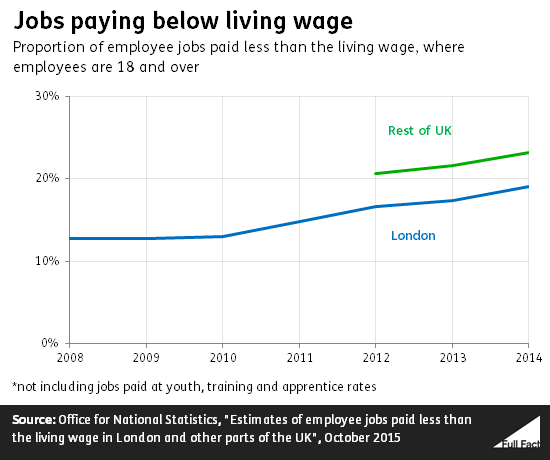"SIX MILLION workers below Living Wage—making mockery of Tory claim they will 'make work pay'"
Daily Mirror, 12 October 2015
Last year six million jobs paid less than the living wage according to the Office for National Statistics (ONS). That in itself doesn't mean six million individuals were paid less than the living wage. A person can have multiple jobs, meaning in theory three of the jobs in question could be accounted for by a single worker.
So it's technically wrong to say six million workers were paid below the living wage, as the Mirror has. Curious to know how wrong it is in practice, we asked the ONS if it could tell us any more. It obliged and provided us with additional figures.
These show that in 2014, 5.4 million people had one job which paid less than the living wage in 2014.
An unknown number of other people had more than one job, at least one of which paid less than the living wage. We know there were half a million such jobs, but not how many individuals they were shared between, and not what the total earnings of these people were.
So it's fair to say that more than 5.4 million workers earn less than the living wage.
This has nothing to do with the "National Living Wage" announced by the government this summer. The living wage we're talking about is the level of hourly pay judged necessary to cover the essentials of living.
It has been calculated for London since 2008, and for the rest of the UK since 2012, by two bodies external to the ONS. The living wages rise with inflation, as well as to take into account other changes to income such as benefit entitlements.
More and more jobs are falling below these levels. In 2008, 13% of jobs in London paid less than the living wage. By 2014, it had risen to 19%. For the rest of the UK it's risen from 21% of jobs in 2012 to 23% in 2014.

